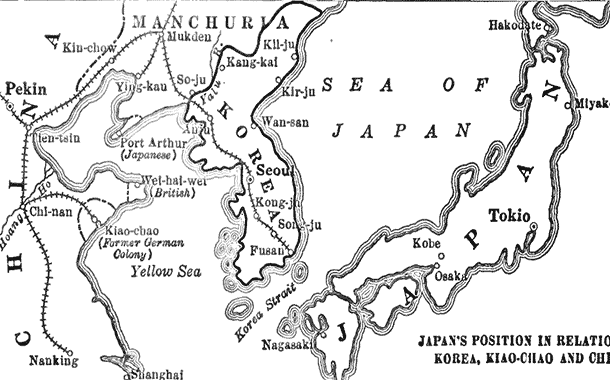<![CDATA["China is seriously concerned about and resolutely opposed to the negative tendencies which have appeared in Japan regarding the Yasukuni shrine," (The Guardian 17th October) This statement, from the Chinese foreign ministry, tells us a great deal about the complicated relationship between China and Japan. The history between the two countries has been a tumultuous one filled with rivalry, conflict and aggressive imperialism. As tensions between these two giants of Asia start to dominate headlines again, it is important to look at the deep lying roots of this long standing tension. The foreign ministry was responding to the actions of Japan's Prime Minister Shinzo Abe, who recently sent a ritual tribute to the Yasukuni shrine in Tokyo. One might ask what business China has in questioning the Japanese prime minister sending tribute to a shrine in his own country, but Yasukuni carries a dubious symbolism. It commemorates Japan's 2.5 million dead from the Second World War, but also honours some of its most notorious war criminals. For many Chinese people, the shrine is a reminder of Japanese militarism and war crimes, and Abe's actions are viewed as somehow condoning them. Of course, there is probably more to China's protest than merely questioning the appropriateness of paying tribute to such a questionable memorial. Tensions between the two countries have been building over the last two years. Aircraft fly-bys and actions by ships from both countries have been pushing the boundaries of the two countries' territory in the East China Sea. A group of uninhabited islands, which are administered by Japan but are also claimed by China, are a particular source of dispute. These questions over territory and influence are starting to manifest themselves in diplomatic disputes over a host of other issues, as evidenced by the Yasukuni incident. Although the current situation between the two countries seems to have suddenly sparked out of nowhere, it is not without precedent. Until the late nineteenth century, Japan was very much in the cultural sphere of the Chinese Empire, then the dominant force in Asia. Japan had adopted a great deal from Chinese culture, including its writing system. The Meiji Restoration in the middle of the nineteenth century consolidated imperialism in Japan, and triggered a dramatic program of modernisation as the country begun to follow the industrialising blue print of Europe. At this point, a need for greater resources and more territory put Japan in direct competition with the dwindling Chinese Empire. The first Sino-Japanese war broke out in 1894, as the two countries competed for influence in the Chinese client state of Korea. Although the Chinese forces greatly outnumbered the Japanese in this conflict, the more modern Japanese army was able to inflict a series of significant losses on China. By early 1895 Japanese forces were surrounding Beijing, and China sued for peace. Korea was awarded independence, effectively allowing Japan greater influence in the country, and China ceded the territory of Taiwan to Japanese rule. Most importantly, Japan had announced its new position as a great threat to China's position in Asia. Japan's continued need for resources and land led to the second Sino-Japanese War in 1931, when Japan invaded North Eastern China and Manchuria. In 1937 the Japanese forces swept south, eventually capturing the city of Nanjing. Here one of the greatest atrocities of the Japanese occupation of China took place, when Japanese soldiers massacred hundreds of thousands of civilians and went on a rampage of looting and rape. The defeat of Japan in the Second World War saw it relinquish its overseas territories, including those taken from China. The rise of communism in China saw the collapse of trade links and diplomatic relations between the two countries between the 1950's and 1960's, as they found themselves on opposing sides in the Cold War. Full diplomatic relations were restored in 1972, as Japan began to establish itself as the world's second biggest economy, after the United States. Tensions of course continue to this day, as evidenced by the most recent disagreement. The causes are deep rooted and complicated, stemming as much from a history of dispute as they do from present day economic and territorial competition. ]]>
China and Japan – A Tense History
